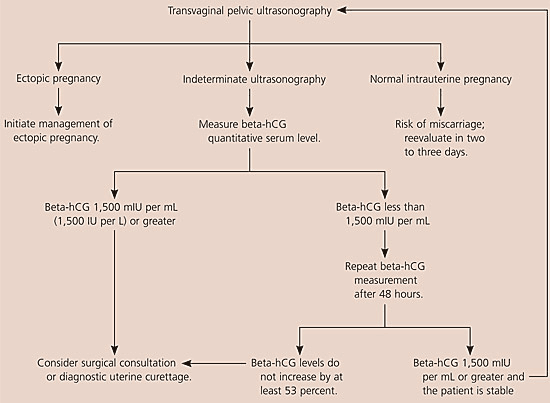
Ectopic Pregnancy: A Comprehensive Guide to Diagnosis
Introduction
An ectopic pregnancy occurs when a fertilized egg implants outside the uterus. This is a life-threatening condition that requires prompt medical attention. The most common site of ectopic implantation is the fallopian tube, but it can also occur in the cervix, ovaries, or abdomen.
Symptoms
The symptoms of an ectopic pregnancy can vary depending on the location of the implantation. However, some common symptoms include:
- Abdominal pain
- Vaginal bleeding
- Irregular periods
- Nausea and vomiting
- Dizziness or fainting
- Shoulder pain
Risk Factors
Certain factors can increase the risk of an ectopic pregnancy, including:
- Previous ectopic pregnancy
- Pelvic inflammatory disease (PID)
- Endometriosis
- Use of an intrauterine device (IUD)
- Smoking
- Infertility treatments
Diagnosis
Diagnosing an ectopic pregnancy can be challenging, as the symptoms can be similar to those of other conditions, such as a miscarriage or a ruptured ovarian cyst. The following tests are typically used to diagnose an ectopic pregnancy:
- Pelvic exam: A pelvic exam can help your doctor to feel for any abnormalities in your uterus or fallopian tubes.
- Transvaginal ultrasound: This is a type of ultrasound that uses a probe inserted into the vagina to create images of the uterus and fallopian tubes.
- Blood tests: Blood tests can measure the levels of the hormone human chorionic gonadotropin (hCG), which is produced during pregnancy. High levels of hCG can indicate an ectopic pregnancy.
Treatment
The treatment for an ectopic pregnancy depends on the location and severity of the implantation. Treatment options include:
- Medication: Methotrexate is a medication that can be used to terminate an ectopic pregnancy. It is most effective when the pregnancy is small and has not ruptured.
- Surgery: Surgery is necessary if the ectopic pregnancy has ruptured or if it is too large to be treated with medication. The type of surgery performed will depend on the location of the implantation.
Complications
Ectopic pregnancies can lead to serious complications, including:
- Hemorrhage: An ectopic pregnancy can rupture and cause severe bleeding. This can be life-threatening.
- Infection: An ectopic pregnancy can become infected, leading to sepsis.
- Infertility: An ectopic pregnancy can damage the fallopian tubes, making it difficult to get pregnant in the future.
Prevention
There is no sure way to prevent an ectopic pregnancy, but there are some things you can do to reduce your risk, including:
- Avoiding smoking
- Using condoms during sex
- Getting vaccinated against sexually transmitted infections (STIs)
- Seeking treatment for any pelvic infections promptly
Conclusion
Ectopic pregnancy is a serious medical condition that requires prompt diagnosis and treatment. If you are experiencing any of the symptoms of an ectopic pregnancy, it is important to seek medical attention immediately. Early diagnosis and treatment can help to prevent serious complications and improve your chances of having a healthy pregnancy in the future.